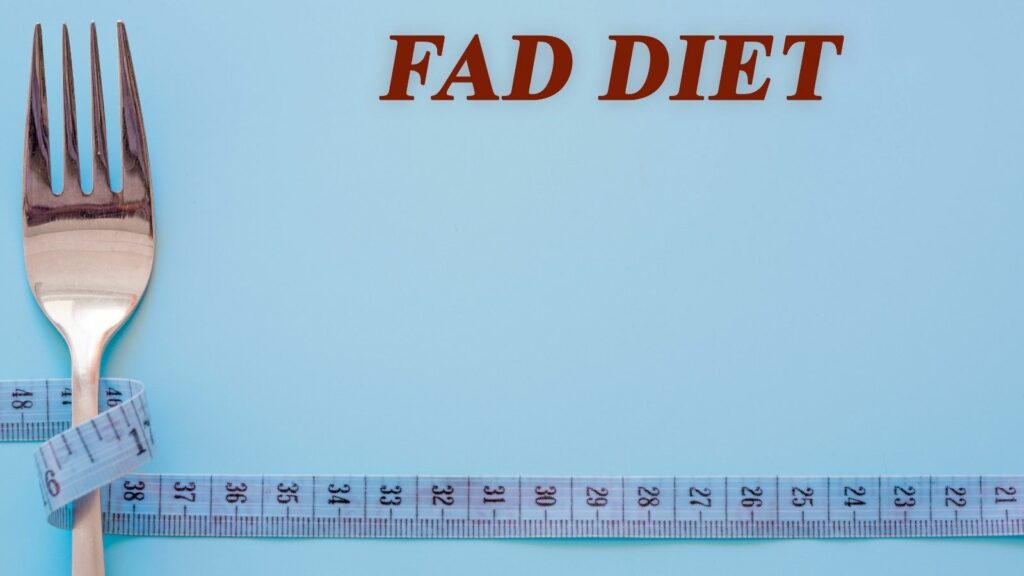In our quest for a healthier lifestyle, we often focus on what, how much, and when we eat. However, sometimes, our well-intentioned dietary choices can inadvertently slow down our metabolism. Here are 18 reasons why your diet might be holding you back from achieving your metabolic goals.
Not Eating Enough

Not eating enough can significantly slow down your metabolism. When severely restricting calories, your body conserves, reducing the metabolic rate to preserve energy. This can lead to fatigue, muscle loss, and a decrease in overall energy levels. To maintain a healthy metabolism, it’s crucial to consume adequate calories that support your body’s basic functions and daily activities.
Lack of Protein

Protein is vital for maintaining muscle mass, which in turn helps keep your metabolism active. A lack of protein in your diet can slow down your metabolism. Without enough protein, your body may start breaking down muscle tissue for energy, leading to muscle loss and a slower metabolism. To keep your metabolism active, include protein-rich foods like lean meats, beans, nuts, and dairy in your diet. This helps support muscle health and overall metabolic function.
Skipping Meals

Irregular eating patterns, such as skipping meals, can disrupt your metabolism and lead to energy imbalances. When you skip meals, your body may go into “defense mode,” slowing down your metabolic rate to preserve energy. This can result in fatigue, decreased concentration, and potential weight gain over time. Eating regular, balanced meals throughout the day is important to maintain a steady metabolism.
Low Iodine Intake

Iodine is vital for thyroid function, which regulates metabolism. A diet low in iodine can lead to a sluggish thyroid and a slower metabolism. To support a healthy metabolism, include iodine-rich foods like seafood, dairy products, and iodized salt in your diet. Ensuring adequate iodine intake helps maintain optimal thyroid function and keeps your metabolism running efficiently.
Dehydration

Not drinking enough water can slow down your metabolic rate. When your body lacks sufficient water, it struggles to perform essential metabolic processes efficiently. This can decrease energy levels and a slower metabolic rate. Staying hydrated is crucial for maintaining an active metabolism. Drinking enough water throughout the day helps your body burn calories more effectively and supports overall metabolic health. Aim to drink at least eight glasses of water daily to keep your metabolism running smoothly.
Lack of Sleep

Poor sleep, or lack of it, can negatively impact your metabolism. When you don’t get enough rest, your body struggles to regulate hormones that control hunger and energy use, leading to a slower metabolic rate. Poor sleep can also increase stress hormones, which further disrupt metabolic processes. Aim for 7-9 hours of quality sleep each night to support a healthy metabolism.
Too Much Sugar

High sugar intake leads to insulin resistance, which affects your metabolism. When your body becomes less responsive to insulin, it struggles to regulate blood sugar levels effectively, which can disrupt metabolic processes. High sugar intake can also contribute to weight gain and increased fat storage. Limiting sugary foods and beverages and choosing whole foods that provide sustained energy and support metabolic health to maintain a healthy metabolism is essential.
Not Enough Fiber

Fiber aids digestion and helps regulate blood sugar levels, which are crucial for maintaining a healthy metabolic rate. A diet low in fiber can lead to digestive issues and slower metabolic processes. To support your metabolism, include fiber-rich foods like fruits, vegetables, whole grains, and legumes in your diet. Adequate fiber intake helps keep your digestive system running smoothly and supports overall metabolic health.
Low Iron Levels

Low iron levels can slow your metabolism by reducing the oxygen your muscles receive, which is essential for burning fat. Iron is crucial for the production of hemoglobin, which transports oxygen in the blood. Without enough iron, you may experience fatigue and decreased metabolic efficiency. Add iron-rich foods like lean meats, beans, spinach, and fortified cereals into your diet to support a healthy metabolism. Adequate iron intake helps maintain energy levels and metabolic function.
Lack of Calcium

Lack of calcium can slow down your metabolism by affecting fat metabolism. Calcium plays a crucial role in breaking down fat cells for energy. Without enough calcium, your body may struggle to metabolize fat efficiently, leading to a slower metabolic rate. Incorporate calcium-rich foods like dairy products, leafy greens, and fortified foods into your diet to support a healthy metabolism. Adequate calcium intake helps maintain metabolic efficiency and overall health.
Too Much Alcohol

Consuming too much alcohol can slow down your metabolism by affecting liver function. The liver metabolizes alcohol, and excessive intake can overburden it, reducing its efficiency in processing other nutrients and fats. This can lead to a slower metabolic rate and potential weight gain. It’s important to consume alcohol in moderation to maintain a healthy metabolism. Limiting alcohol intake helps support liver health and overall metabolic function.
High Stress Levels

High-stress levels can slow your metabolism by increasing the production of stress hormones like cortisol. Elevated cortisol levels can lead to increased fat storage, particularly around the abdomen, and a slower metabolic rate. Chronic stress can also disrupt sleep and eating patterns, further impacting metabolic health. Managing stress through exercise, meditation, and adequate rest is essential to support a healthy metabolism.
Lack of Physical Activity

Lack of physical activity can significantly slow down your metabolism. Regular exercise is crucial for maintaining muscle mass and promoting efficient metabolic processes. Without enough physical activity, your body may burn fewer calories, leading to weight gain and a slower metabolic rate. Aim for 150 minutes of moderate aerobics or 75 minutes of vigorous strength training each week to support a healthy metabolism.
Eating Processed Foods

Eating processed foods can slow down your metabolism. These foods often contain additives, preservatives, and unhealthy fats that can be harder for your body to break down, leading to a slower metabolic rate. Processed foods can also cause blood sugar spikes and crashes, disrupting metabolic processes. Opt for whole, unprocessed foods like fruits, vegetables, lean proteins, and whole grains to support a healthy metabolism.
Low Vitamin D Levels

Low vitamin D levels can slow metabolism, affecting muscle function and overall metabolic processes. Vitamin D is essential for maintaining muscle health, which supports a healthy metabolic rate. Without enough vitamin D, you may experience muscle weakness and decreased metabolic efficiency. Include vitamin D-rich foods like fatty fish, fortified dairy products, and egg yolks, and ensure adequate sun exposure to aid your metabolism.
Too Much Caffeine

While moderate caffeine intake can boost metabolic rate, excessive consumption can increase stress hormone levels, disrupting metabolic processes. High caffeine intake can also interfere with sleep, further impacting metabolism. Balancing your caffeine consumption to maintain a healthy metabolic rate is important. Choose for moderate coffee or tea, and avoid energy drinks and excessive caffeine supplements.
Eating Late at Night

Eating late at night can disrupt your body’s natural metabolic processes, leading to a slower metabolism. When you consume food near bedtime, your body may not efficiently process the calories, potentially leading to weight gain and metabolic imbalances. Try having your last meal at least a few hours before bed to support a healthy metabolism. This allows your body to digest and metabolize the food to maintain metabolic efficiency properly.
Not Enough Healthy Fats

Not consuming enough healthy fats can slow down your metabolism. Healthy fats are essential for hormone production, including hormones that regulate metabolism. Without adequate healthy fats, your body may struggle to maintain hormonal balance, leading to a slower metabolic rate. Include healthy fats like avocados, nuts, seeds, and olive oil in your diet to support a healthy metabolism.
Conclusion

By being mindful of these factors, you can make dietary choices that support a healthy metabolism and help you achieve your wellness goals. Remember, balance and consistency are crucial to maintaining a robust metabolic rate. If you have specific concerns, consulting with a healthcare professional or a registered dietitian can provide personalized guidance.
